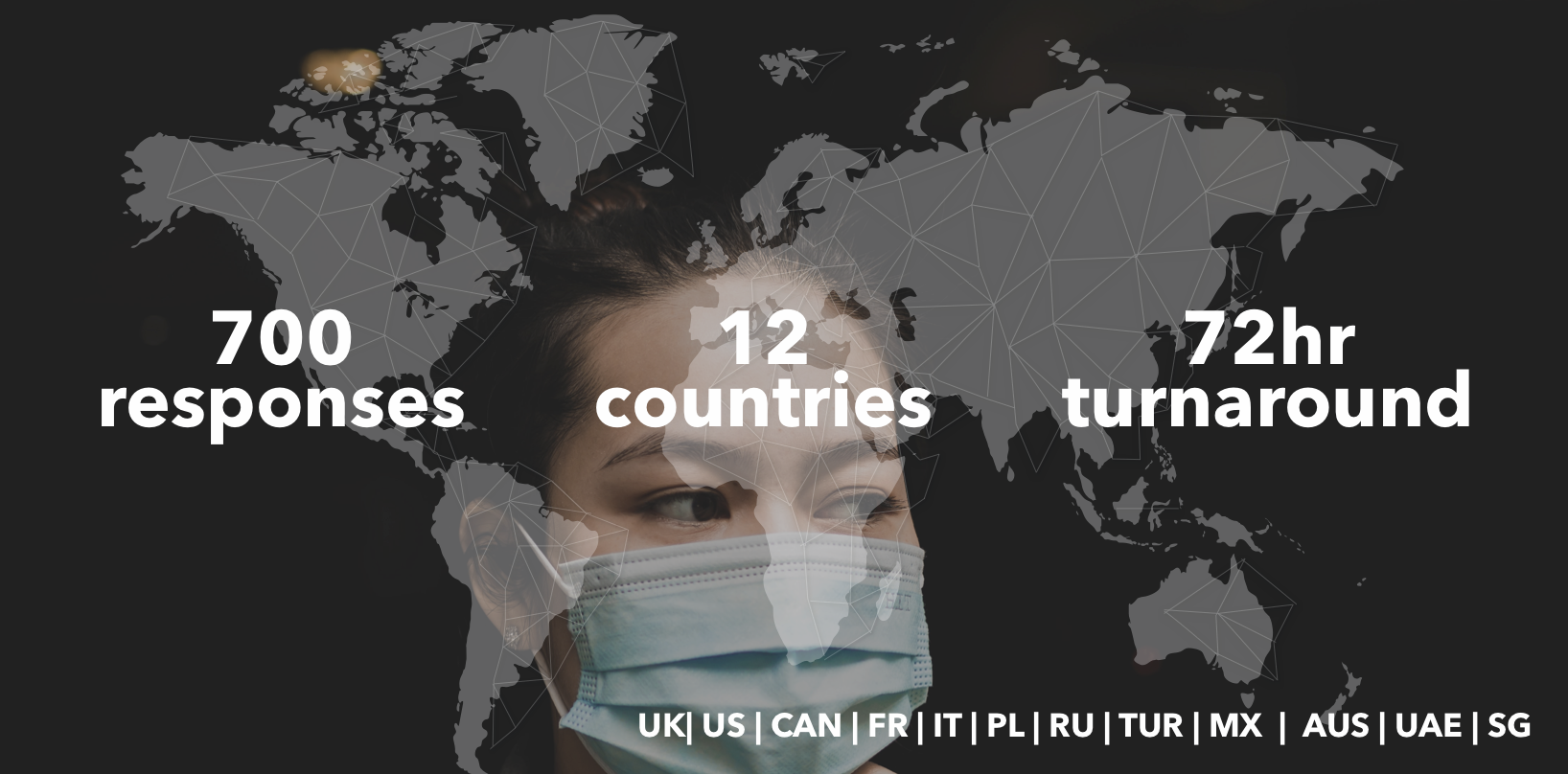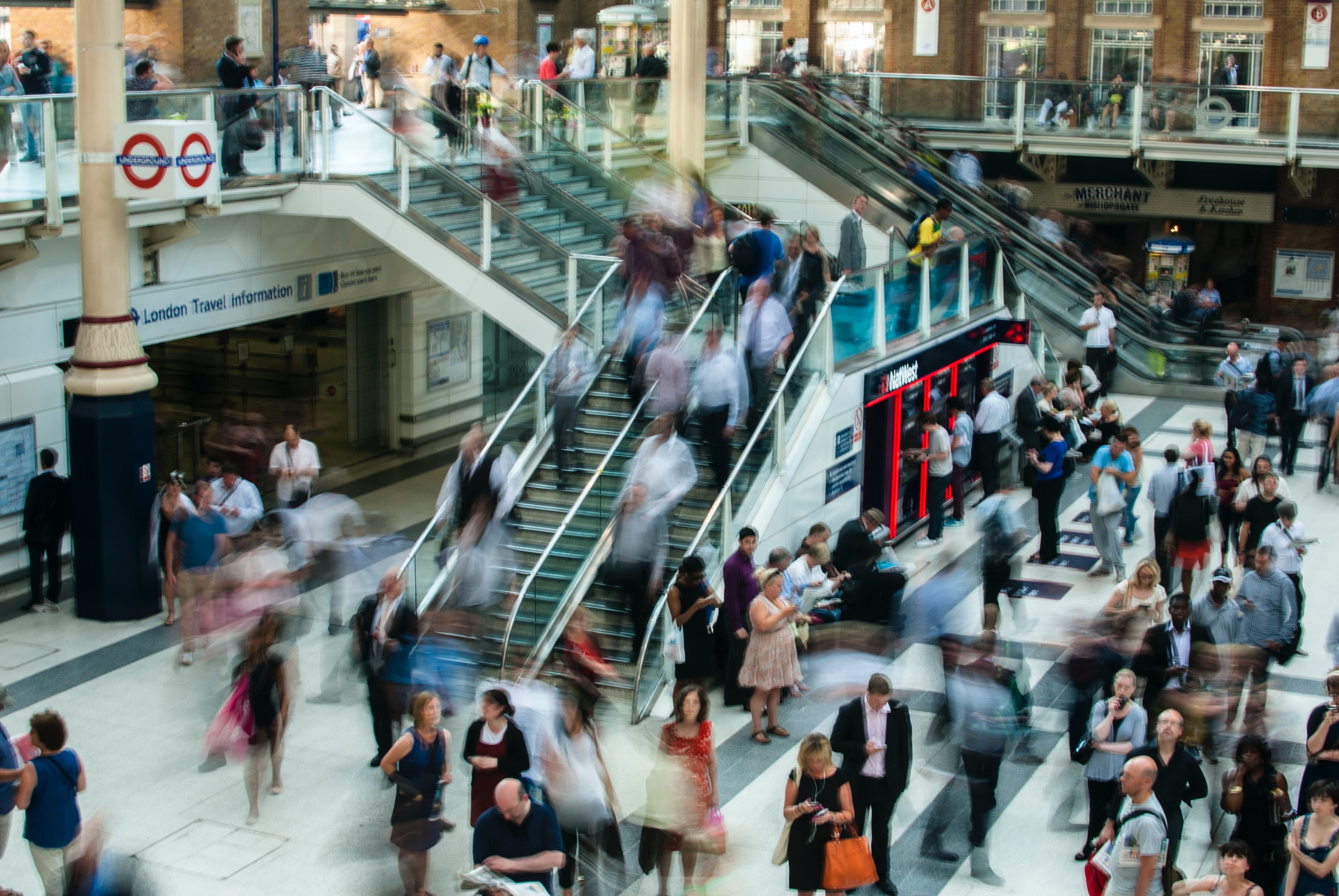With each passing day, headlines surrounding the coronavirus seem to be getting more and more alarming. In the UK, we’re seeing public health advice about self-isolation, businesses making plans for remote working and the threat of schools and colleges being closed. News channels tell us that global stock markets are reporting record lows, international trade deals are being compromised and certain countries are planning bans on public gatherings. While the outbreak is yet to be confirmed as a pandemic, there’s no doubt that it is affecting the lives of millions across the globe.
One of the most widely publicised phenomena surrounding coronavirus is the panic buying of certain foods and household goods. This weekend, the Guardian reported seeing a 12-pack of handwash bottles (each bottle usually being priced at £1.29) on sale on Amazon for £150, and told us that delivery firm Ocado has asked shoppers to place orders early due to ‘exceptionally high demand’. Elsewhere, we are hearing that hand sanitiser prices on eBay have shot up by twenty times, and Tesco is restricting sales of essential food and household products – with shoppers limited to buying no more than five at a time of things like sanitiser, long-life milk and tinned veg.
With all this in mind, we asked our global community about the kind of impact the coronavirus is having on their day-to-day lives… And how they’re feeling, behaving and reacting to the atmosphere of alarm and nervousness both in the news and in public life.

Pandemic of fear
Seventy-five percent of our community is either worried, or very worried about coronavirus. Contagious and with no vaccine, COVID-19 has created a fear of contact with other people – and it’s left elements of our community with feelings of fear and isolation. When asked directly how coronavirus has made them feel, we saw a prevalence of words like ‘anxiety’, ‘negative’, and ‘worried’ – and a community living in fear of contact with their fellow humans.
“Unfortunately, coronavirus has greatly influenced my way of life and that of others. I have adopted several ways of precaution, the same that have been recommended by the media. Stay at a certain distance from people, avoid physical contact such as kisses, hugs and handshakes, (and) avoid very crowded places. This, however, negatively influences the daily lives of each of us, because in this way we are not free to socialize… It isolates us.” Bulbshare user 🇮🇹
“You have to be patient and have an open and very positive mind because sometimes you get sick from the negativity and everything that they say in the news… You will get sick just thinking about it.” Bulbshare user 🇲🇽
“I have small children and therefore I am very worried while they still do not know the treatment for this disease. There are already so many deaths around the world and this disease continues to progress.” Bulbshare user 🇷🇺

Hygiene focus
These collective feelings of anxiety and fear are having a very real impact on how our community is behaving. 39% of our respondents plan to avoid large groups of people over the coming weeks, while 34% will avoid public transport, and 25% will postpone or change travel plans.
Unsurprisingly, hygiene is top of our community’s minds. Washing their hands more than ever, avoiding contact with others, wearing plastic gloves when in public and self-isolating at the first sign of illness are all top of the agenda – and hand sanitizer is the product of choice when it comes to shopping.
“Absolutely, this virus has greatly impacted my routine of doing things, starting with reducing the number of business trips I make – plus having to live under tight measures with fear.” Bulbshare user 🇺🇸
“Avoid (busy) places, do not say hello or kiss, bring a mask, wash my hands frequently, if necessary, stay in house.” Bulbshare user 🇲🇽
“I use hand sanitizer every day. I wear (a) face mask each time I go outside. I make sure to not touch surfaces that people often touch.” Bulbshare user 🇲🇾
“I carry out my life regularly, but I try to observe the sanitation rules more closely and I am avoiding going to closed and crowded places if not strictly necessary.” Bulbshare user 🇮🇹

Impact on shopping
Nearly 40% of our respondents say the coronavirus has affected the way they shop – with 36% saying they will be avoiding supermarkets and shopping online and 37% avoiding produce from overseas (the words ‘China’ and imports’ loomed large in our word cloud). 34% of our community will be stocking up on non-perishable products, while 27% will be avoiding meat.
The main things mentioned by our community are cleaning products and non-perishable foods such as canned goods, pasta and rice and frozen vegetables. While motivations behind stockpiling are a mix of fear of supermarket shelves running low on essential items (some report already seeing this), plus concerns around having to stay in isolation for extended periods with no access to shops.
“Stockpiling on non-perishables and household items like toilet paper, cleaning supplies like bleach, as well as soap and hand sanitizer.” Bulbshare user 🇨🇦
“I am stocking up on food and on other consumables, such as cleaning materials and toiletries, that I wouldn’t want to be without. My aim is to be able to get by for a month without having to go shopping – if it becomes necessary for me to stay at home.” Bulbshare user 🇬🇧
“When it comes to coronavirus, I try not to panic. However, due to the fact that I noticed that there are significant shortages on store shelves, I also decided to stock up on buying a few kilograms of flour, a few packets of pasta and sauces in a jar, ham and sausages in cans and jars, rice, and a few kilograms of frozen vegetables and fruit. The plans for weekend shopping also include the purchase of several five-litre bottles of water just in case.” Bulbshare user 🇵🇱
‘Don’t panic’ sceptics
While the majority of our community are concerned about the coronavirus and changing their behaviour accordingly, there is a notable contingent who are going about business as usual and feel that many are panicking unnecessarily. These people may be washing their hands more, but are not changing the way they shop, and are certainly not stockpiling. And there are some who feel that over-reporting of the virus has led to feelings of unneeded nervousness and overly drastic behaviour.
“I have not done anything different. I think we are at a very low risk as we usually stay in our local area, have not been in contact with overseas travellers, and (I) definitely will not indulge in panic buying.” Bulbshare user 🇵🇱
“Nope, carry on living. The only difference is that I have to work around people who are panicking.” Bulbshare user 🇬🇧
“I haven’t done anything differently since finding out about coronavirus. I think a lot of people are over panicking… The media need to stop scaremongering.” Bulbshare user 🇬🇧
Stay in touch with Bulbshare for continued reports around global reactions to the coronavirus over the coming weeks.


Мы все обеспокоены тем, как коронавирус захватывает все больше и больше стран. Стараемся избегать посещению людных мест.